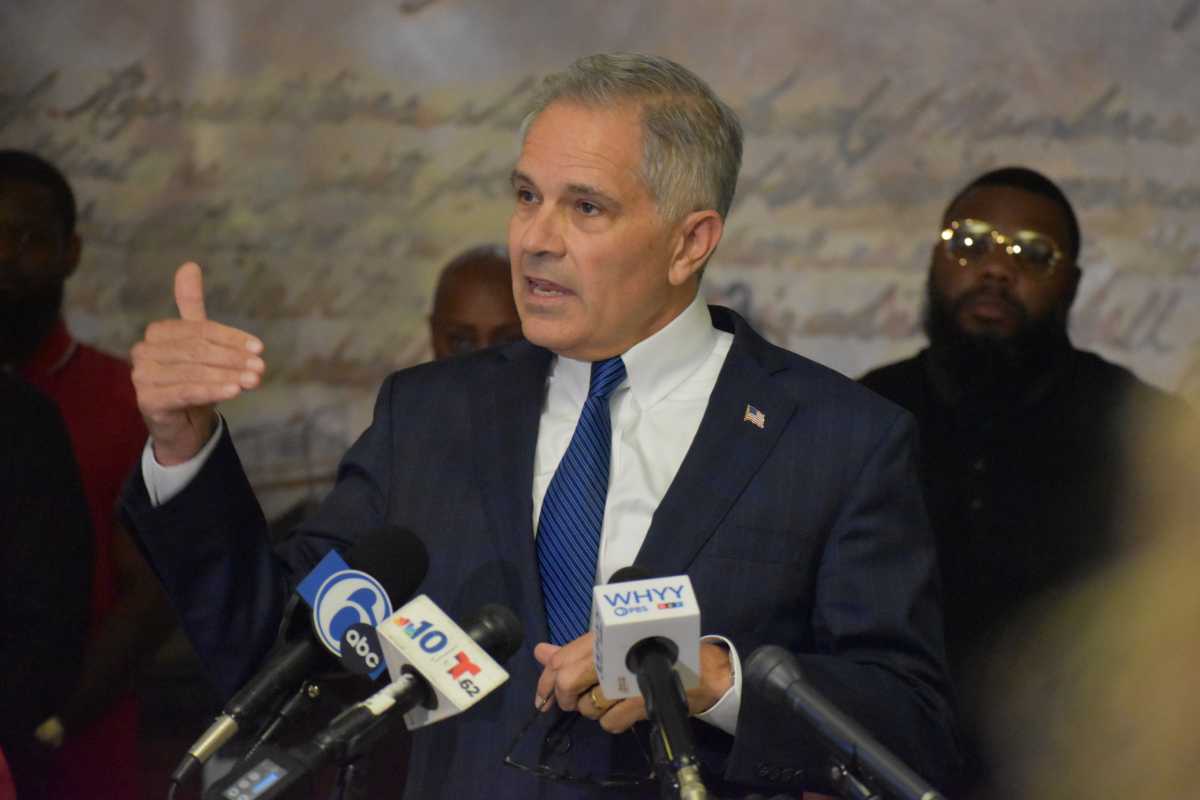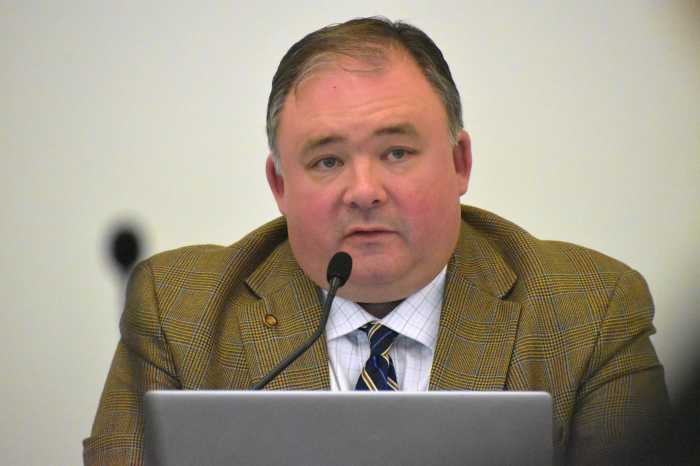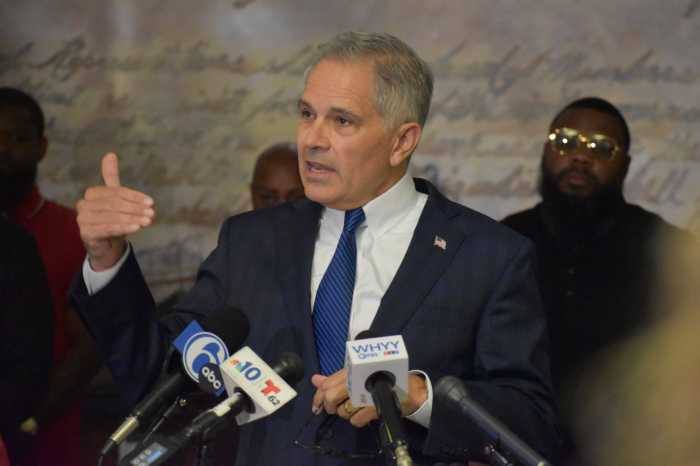A day after his impeachment trial was postponed indefinitely, District Attorney Larry Krasner appears to have received another boost in his fight against the GOP-led attempt to remove him from office.
The Commonwealth Court, in a lengthy majority opinion issued Thursday, found that the seven charges levied by state lawmakers “cannot serve as the basis for a constitutionally sound impeachment trial.”
A decision in the case was announced Dec. 30, but Krasner’s team and state Senate Republican leaders were awaiting the opinion to learn the reasoning behind the ruling from the four-person judicial panel.
Judge Ellen Ceisler, the Democrat who authored the opinion, wrote that lawmakers can still move forward with the trial if they choose, since Krasner’s lawsuit sought a “declaratory judgment,” not a binding order.
However, continuing with the removal proceedings would likely bring further legal action, given that the court has now declared that the articles of impeachment are not viable under the state constitution. GOP leaders could also appeal the ruling to the Pennsylvania Supreme Court.
Senators voted Wednesday to push back Krasner’s trial, which was scheduled to begin Jan. 18, due to the legal developments. No alternative date was set. The state House of Representatives voted along party lines to impeach him in November.
Representatives from Krasner’s office and the Senate Republican caucus told Metro on Thursday afternoon that they were still reviewing the opinion and did not comment further.
In a surprising move, one of the judges who sided with the majority decision last month, Democrat Michael Wojcik, said that “upon further reflection” he believes the Senate should be able to move forward with four of the charges.
“I joined the position of the lead opinion when the matter was presented to this Court on an expedited basis,” wrote Wojcik, in a concurring opinion also published Thursday.
His position now is that only the articles related to professional and judicial conduct are unconstitutional, since those issues are within the purview of the state Supreme Court, not the legislature, he said in the court filing.
Ceisler, in the majority ruling, examined each of the seven allegations and determined none met the state Constitution’s standard for “misbehavior in office.” She rejected a House Republican argument that lawmakers have wide latitude in defining “misbehavior.”
The articles of impeachment claim Krasner’s policy choices have caused skyrocketing violence in Philadelphia; however, the decisions cited, such as hiring and firing attorneys and deciding who to charge, are part of a prosecutor’s discretion, Ceisler wrote.
She said the second count – alleging Krasner interfered with a legislative committee’s investigation – has nothing to do with his official duties as DA.
On the specific cases outlined in the charges, involving former police officer Ryan Pownall, among others, Ceisler and Wojcik agree that those legal ethics issues can only be handled by the state Supreme Court.
And while the articles claim Krasner’s office has violated state victims’ rights laws, no specific incidents are detailed, according to the opinion.
The Commonwealth Court majority rejected two arguments by Krasner’s legal team: that the impeachment proceedings should have expired when the last legislative session ended in November, and that Harrisburg lawmakers cannot impeach him as a local official.
Republican Judge Patricia McCullough, in a dissenting opinion, said the case is legally flawed and that her colleagues should not be meddling in an ongoing impeachment process.
McCullough said that the ruling “has hurriedly and needlessly plunged this Court into a wash of nonjusticiable political questions over which we currently have no decision-making authority” and that it violates separation of powers principles.






























